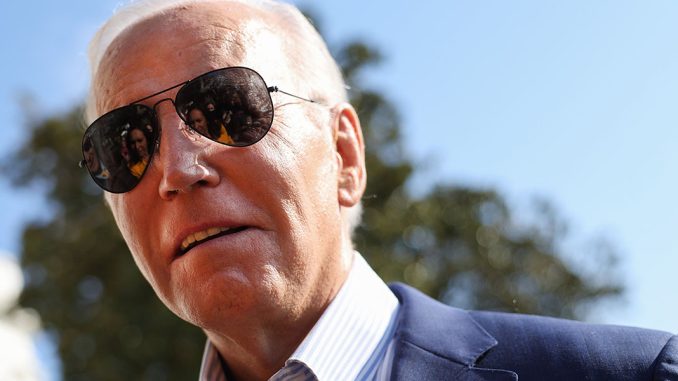
The credit rating agency Moody’s last week downgraded its assessment of the federal government’s debt outlook to “negative.” The move Friday followed the Fitch agency’s August downgrade of the overall federal credit rating.
These developments shouldn’t come as a surprise to Washington. The gross national debt has climbed to $33.7 trillion, while the Social Security and Medicare trust funds are $75.3 trillion in the red.
That means that America’s politicians have dug a $109 trillion hole amounting to over $830,000 for every household in the country. Congress needs to start addressing this crisis before it sinks the nation.
The credit rating agencies are right to say that federal debt is no longer as risk-free as it used to be.
Investors are waking up and demanding higher interest yields on debt. As a result, interest payments are now the third-largest federal expenditure, behind only Social Security and national defense.
Federal finances were in rough shape before the COVID-19 pandemic. However, the nation’s leaders opportunistically used the public health emergency as an excuse to launch a $7.5 trillion spending spree.
The spree was a major cause of the devastating inflation that is still punishing Americans who are just trying to make ends meet.
In addition, the Federal Reserve has raised interest rates in an attempt to push down inflation, causing annual interest payments on a typical mortgage to nearly triple. It’s no wonder that younger families with children increasingly are unable to afford a home of their own, or that household debt is also surging.
Perhaps the most astonishing thing about these depressing numbers isn’t the size of the problems they point to, but the complete unwillingness of most of the U.S. political class to take the situation seriously.
Compared to enemies the country has faced throughout its history, including the British Empire, the Axis powers, and the Soviet bloc, out-of-whack finances ought to be a piece of cake. After all, the federal budget is entirely within the country’s control.
Yet rather than rising to the challenge by taking a sober look at federal bloat for opportunities to cut wasteful and inappropriate spending, much of the political establishment is trying to make the debt crisis even worse. Examples include:
- The Biden administration’s requests for $162 billion in “emergency” funding, most of which would go toward nonemergencies or should be part of the regular spending process.
- Tens of billions of dollars in budget gimmicks added to spending bills by legislators in the House, with the Senate attempting to add billions more through its own abuse of the “emergency” loophole. These gimmicks are designed to hide extra spending within budget caps.
- A mounting push to increase subsidies for agribusinesses in the upcoming farm bill. Since the overwhelming majority of the increase would go to large and financially secure operations, this would be little more than corporate welfare.
Although it’s easy to point out the many ways that the Biden administration and congressional Democrats have added to deficits, there’s no shortage of “moderate” Republicans who are frivolous with taxpayer dollars.
For example, the House has struggled to pass a transportation spending bill due to opposition from New York Republicans over proposed cuts to Amtrak.
However, this opposition ignores the massive funding Amtrak received from the 2021 infrastructure bill, as demonstrated by the Department of Transportation announcing $16 billion in Amtrak improvement projects—far larger than the cuts imposed in the House legislation.
If these lawmakers can’t stomach cuts to Amtrak, which accounts for less than 0.1% of the nation’s transportation usage, how can they possibly tackle bigger problems such as Social Security’s looming bankruptcy?
On the Senate side, many Republicans have joined Democrats in embracing earmark spending, which inevitably means funding local boondoggles that they can take credit for on the campaign trail.
Republicans who are comfortable with a big government that doles out “free” money in all directions should understand that the only alternative to spending cuts is broad, European-style taxation that would punish the middle and lower classes.
Rather than dodging hard decisions and kicking the can down the road, legislators should roll up their sleeves and get to work on bringing the budget deficit down as quickly as possible.
That includes preserving and improving on savings included in the House’s spending bills, addressing the large portion of federal spending that’s outside the annual spending process, and seeking solutions that can get around short-sighted political hurdles.
Preventing the federal debt from permanently hobbling the economy is one of America’s largest challenges. However, there is still time for Washington to do the right thing.
Have an opinion about this article? To sound off, please email letters@DailySignal.com, and we’ll consider publishing your edited remarks in our regular “We Hear You” feature. Remember to include the URL or headline of the article plus your name and town and/or state.

